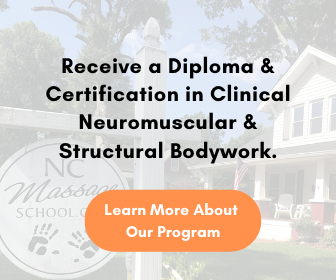Prepping for Massage School
Are you considering becoming a professional massage therapist? Undoubtedly, a swarm of questions must be floating in your mind: Which are the paramount massage therapy institutions? How extensive is the curriculum? What massage therapy certifications can one acquire? Is massage school the right choice for me?
We’re here to guide you through these queries. Choosing a massage school involves considering course variety, certification types, and financial implications and ensuring the institution’s environment aligns with your values and career aspirations.
Be sure to review these insightful pointers for your forthcoming venture into the world of massage.
- Variety in Courses: Every massage course has its distinct flavor, but all focus on instilling the skills to master the art of massage therapy. Dive into the subjects of anatomy, massage fundamentals, health protocols, and mastering client interactions.
- Duration of Massage School: How long will you be in school? Well, that depends! Each state has unique licensing norms impacting the duration of certification courses. In places like North Carolina, a 650-hour curriculum might span roughly six months for full-time students. Opting for part-time? Your journey might stretch a bit, with evening classes becoming popular for many balancing work or parenting.
- Certification Types: The National Certification Board for Therapeutic Massage and Bodywork is your primary certification source. Yet, a world of specialization awaits – from medical massage reflexology to practical acupuncture.
- Pre-Entry Requirements: Each state might have its prerequisites. A high school diploma or equivalent, like a GED, is a common ask. However, real-world experience might sometimes be a ticket in. It’s prudent to check with your desired institution for clarity.
- A Flourishing Domain: Data from the American Massage Therapy Association (AMTA) reveals that the massage therapy sector was valued at $18 billion in 2018. Predictions also suggest an annual growth rate of 1.9% until 2024. The opportunity is knocking; are you ready?
- Financial Blueprinting: Qualifying as a massage therapist carries its financial weight. A typical course can range from $8,000 to $11,000. Location and state regulations play their part in determining the cost. Remember, textbooks, equipment, and even your massage table might add to this.
- The Perfect Institution: Your ideal school extends beyond the curriculum. The environment, the ethos, and the teaching paradigms matter. Attend open house events, connect with alums, and ensure you resonate with the institution’s vibe.

What Is The Learning Environment Like?
NC Massage School offers a unique learning environment in a charming facility in Cornelius, NC, located minutes from Charlotte, NC.
If learning the therapeutic art of touch intrigues you, here’s a sneak peek into what massage school has in store.
Broad Spectrum of Topics:
-
- Understanding the Body: Courses will delve into anatomy, physiology, and kinesiology intricacies. These subjects unravel the mysteries of the human body, from organ placement to muscle functionalities.
- Beyond Physicality: Some subjects, like ethics and business management, might initially seem out of place. However, they are crucial. As a massage therapist, your task isn’t just physical healing but also fostering trusting, professional relationships with clients. Schools equip students with the knowledge to manage business while fostering genuine client rapport ethically.
- Traditional Classroom Insights: Expect textbooks, lectures, and even model skeletons for a holistic learning experience.
Practical Learning Experience:
-
- Hands-On Approach: Practical training is the core of massage therapy education. It’s natural to feel nervous initially but remember, everyone is there to learn. This tangible learning, where students alternate between giving and receiving massages, hones their skills and offers delightful relaxation moments.
Professionalism and Etiquette:
-
- Hygiene and Respect: Maintain impeccable hygiene standards for your hands, tools, and workspace. Cultivate excellent bedside manners, showing unwavering respect to peers, educators, and industry professionals.
- Open Ears, Open Heart: Effective communication ensures the therapist and client are at ease, paving the way for relaxed and effective sessions.
Building Bonds:
-
- Strong Connections: One of the most heartwarming parts of massage school is the deep camaraderie you’ll form with peers. This community of support, laughter, and shared experiences is priceless.

Diverse Massage Techniques:
-
- Swedish Massage: A renowned technique to soothe muscle tension.
- Clinical Sports Massage: Tailored for athletes and fitness enthusiasts, aiding injury prevention and recovery.
- Connective Tissue Massage: A focus on the protective fascia tissues.
- Neuromuscular Massage: Targets trigger points, alleviating muscle spasms.
- Reflexology: Pressure application on specific reflex points on feet, hands, or ears.
- Shiatsu: An Asian-origin massage employing specific finger pressures and motions.
Foundational Knowledge:
-
- Apart from techniques, it’s essential to grasp the underpinnings of the human body. Expect courses on Musculoskeletal Anatomy, Anatomy and physiology, Health, CPR, First Aid, and Pathology.
The Business Perspective:
-
- Beyond mastering techniques, it’s pivotal to understand the massage industry’s legal and ethical landscape. State-specific laws, licensing, and industry ethics are integral to your education.
If the above resonates with your aspirations, a massage therapy school could be your next big leap!
Career Opportunities
Post your formal education, the journey isn’t over. Continuing Education (CE) is another frontier, with specific hour requirements and subjects to delve into. Learn more about our CE courses for massage therapists!
The Bureau of Labor Statistics is optimistic, predicting a 24% growth rate for massage therapists from 2016 to 2026. This versatile career opens doors to numerous environments, from upscale salons to holistic health centers.
Kickstart your rewarding career as a massage therapist by choosing the right school. Explore in-depth courses, familiarize yourself with state-specific requirements, and find a school that mirrors your values. Experience the transformative power of touch and make a difference with NC Massage School. Are you set for this exciting journey? Contact us to get more information!


